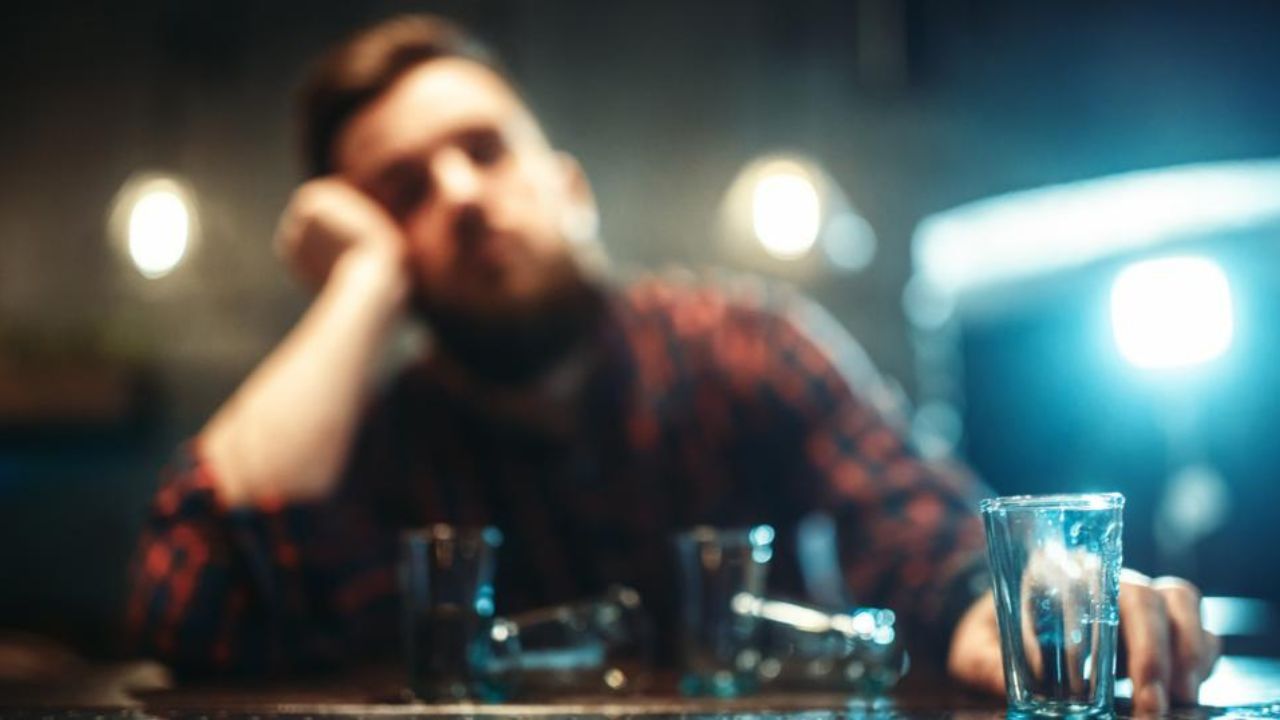We’ve all seen it, maybe we’ve even been there ourselves.
The weekend rolls around, and a certain group of people seem almost magnetically drawn to the bar, ready to drink themselves into oblivion.
There’s no harm in having a drink or two with friends, but for some, the need to get drunk every weekend is deeper than just having a good time.
I’ve been curious about this for a while, and after reading a lot about it and reflecting on some experiences I’ve had with friends and even myself, I realized that it’s not always as simple as “just having fun.”
The psychology behind these behaviors is much more complex than that. Whether it’s escapism, loneliness, or something else entirely, these patterns often signal something deeper going on under the surface.
So, I want to take some time to share what I’ve learned about these behaviors. Maybe you recognize some of them in yourself, or maybe you’ll see a friend or loved one in these patterns.
Either way, it’s worth understanding what’s going on from a psychological perspective, because that understanding can lead to empathy, and empathy can open the door to real conversations and support.
1. Escapism
Escapism is one of the main reasons people turn to excessive drinking, according to psychologists.
And it’s not about planning a getaway to a beach paradise—it’s about mentally escaping from everyday pressures and realities.
I’ve noticed that people who drink excessively on the weekends aren’t just trying to have fun.
Often, they’re using alcohol to create a mental buffer between themselves and their lives.
The stress from work, personal struggles, or even deeper emotional pain might push them toward a need to “check out” for a while.
Getting drunk becomes a way to forget, to numb, and to momentarily feel like those burdens aren’t weighing them down.
I had a friend once who worked a high-pressure job.
She’d live for the weekend, and it wasn’t because she was looking forward to brunch or movie nights.
Get Smarter Everyday Join Us On WhatsApp
Her Fridays started with one glass of wine, which quickly turned into more, and by Saturday, she’d be completely out of it.
It wasn’t until she admitted she was drowning in stress and unhappiness that it clicked—her drinking was her escape route.
It’s important to remember that if you see someone engaging in this behavior, they’re probably not doing it just for fun.
Offering them understanding instead of judgment could be the first step in helping them find a healthier way to cope.
2. Social Necessity
Ever feel like you have to drink just because everyone else is? I have.
There’s this subtle (or not-so-subtle) pressure to keep up with the crowd.
You’re out with friends, everyone’s ordering drinks, and you feel like you have to join in to be part of the group.
Psychologically, this is tied to a need for acceptance.
We all want to belong, and if the group’s activity is centered around drinking, it’s easy to feel like you have to do the same.
I remember feeling that in my early twenties—like fun and being part of the crowd meant drinking.
If you didn’t, it was almost as though you weren’t fully participating in the night.
What’s tricky about this is that it doesn’t just stop at peer pressure in high school or college.
Adults experience it too. I’ve seen this with coworkers at office happy hours or even at social gatherings with family.
The pressure to fit in, to not be the odd one out, can lead people to drink more than they’d planned.
Get Smarter Everyday Join Us On WhatsApp
3. Emotional Discomfort: Numbing the Pain
This one hits close to home for many people.
When someone is drinking excessively, they might be self-medicating to cope with emotional discomfort.
Whether it’s anxiety, depression, or unresolved stress, alcohol can provide temporary relief.
There’s actually a term for this—self-medication.
Research has shown a strong link between alcohol use and mental health disorders.
According to the National Institute on Alcohol Abuse and Alcoholism, almost 37% of people who abuse alcohol have at least one significant mental health disorder.
I remember someone once telling me that after a long, difficult week, they just wanted to “shut their brain off” for a bit, and drinking helped them do that.
The problem is, while alcohol might numb those feelings temporarily, it never actually resolves the underlying issues. In fact, it often makes things worse.
If you know someone who drinks to dull emotional pain, it’s worth encouraging them to seek professional help.
Talking to a therapist or counselor can provide a way out that doesn’t rely on a bottle.
4. Habit Formation
Ever notice how some people seem to drink out of habit?
It’s like their brain has linked weekends with alcohol, and it’s just what they do.
They don’t think twice about it; it’s simply part of their routine.
Habits are tricky things. The brain is wired to form connections between behaviors and rewards.
So, if you’ve consistently had a drink to unwind at the end of the week, over time, your brain starts expecting it.
Get Smarter Everyday Join Us On WhatsApp
That’s why some people feel an almost automatic pull toward alcohol every weekend. It’s not even a conscious choice anymore—it’s just a habit.
Breaking this cycle is hard, but it starts with awareness.
Once someone recognizes that they’re drinking out of habit rather than desire, they can start to replace that routine with healthier alternatives.
Maybe instead of heading to the bar on Friday night, they could try a yoga class, go for a walk, or even take up a hobby that helps them relax without needing alcohol.
5. Lowered Inhibitions
We’ve all heard the phrase “liquid courage,” and for some people, that’s exactly what alcohol provides.
It lowers inhibitions, helping them feel more outgoing, more fun, and more confident.
But there’s more to this than just wanting to be the life of the party.
For many, alcohol provides an escape from the constraints they feel during the week. Maybe they’re shy or feel repressed in some way.
The weekend and the alcohol provide a chance to let loose and be someone they normally wouldn’t be.
I’ve seen people who seem to become completely different once they’ve had a few drinks.
It’s as if the alcohol frees them from whatever was holding them back during the week.
While it might feel freeing in the moment, relying on alcohol to express parts of yourself isn’t a healthy long-term strategy.
It’s much better to find ways to feel free and uninhibited without needing to get drunk.
6. Loneliness
This one breaks my heart because loneliness is such a deeply human experience.
Get Smarter Everyday Join Us On WhatsApp
People can be surrounded by friends, family, or coworkers and still feel incredibly alone.
For some, alcohol becomes a companion that fills that void.
They drink to feel connected, even if just for a few hours.
The thing is, while alcohol might provide a temporary sense of connection, it’s not real.
And when the effects wear off, that loneliness can feel even more profound.
I’ve had friends who’ve admitted to drinking because they didn’t want to be alone with their thoughts or feelings.
It’s a tough cycle to break because it’s not just about the alcohol—it’s about the emotional need that’s not being met.
If you know someone who drinks to fill a void, reach out.
Sometimes, just knowing that someone cares and is willing to listen can make all the difference.
7. Lack of Self-Confidence
I’ve been there before—feeling insecure, second-guessing myself, and then having a drink or two and suddenly feeling like I could take on the world.
Alcohol has a way of temporarily boosting self-confidence, which is why some people might feel the need to drink every weekend.
It’s almost like a mask. For a few hours, they can feel more comfortable in their own skin.
But of course, that feeling fades once the alcohol wears off, and they’re left feeling the same insecurities as before.
True confidence comes from within. It’s not something you can find at the bottom of a bottle, but it’s also not something that magically appears overnight.
Get Smarter Everyday Join Us On WhatsApp
It takes time and effort to build self-esteem in a healthy, lasting way.
8. Thrill-Seeking
Some people are just wired for adventure. They crave excitement, the unknown, and the thrill of doing something unpredictable.
For these individuals, getting drunk every weekend might be a way to satisfy that craving.
Alcohol adds an element of unpredictability to the weekend.
You never know what might happen, and that sense of risk can be exciting for people who thrive on adrenaline.
While there’s nothing wrong with seeking adventure, relying on alcohol to provide it can lead to unhealthy behaviors.
If you’re someone who craves excitement, try channeling that energy into something else.
Go skydiving, try rock climbing, or take a spontaneous road trip. There are plenty of ways to satisfy your thrill-seeking nature without needing alcohol to fuel it.
9. Unresolved Trauma
This is the hardest one to talk about, but it’s also the most important.
For some people, the need to get drunk every weekend is tied to unresolved trauma.
They’re drinking to forget, to numb the pain, or to escape from memories that they can’t bear to face.
Trauma is incredibly complex, and dealing with it often requires professional help.
If you know someone who is drinking to cope with trauma, approach them with empathy.
Encourage them to seek support from a therapist or counselor, because healing from trauma is not something anyone should have to do alone.
Final Thoughts
When we see someone who drinks excessively, it’s easy to pass judgment. But the truth is, there’s often so much more going on beneath the surface.
Get Smarter Everyday Join Us On WhatsApp
Whether it’s escapism, loneliness, or unresolved trauma, these behaviors are signals that something deeper is at play.
The most important thing we can do is approach these individuals with empathy and understanding.
Instead of judging them for their actions, let’s ask how we can support them.
Sometimes, just knowing that someone cares can make all the difference in helping them find healthier ways to cope.
If you found this blog post insightful be sure to share it with those out there that are still not aware of it Don't forget to FOLLOW US on Facebook and hit the LIKE button for more new content. Thanks so much for reading.....






